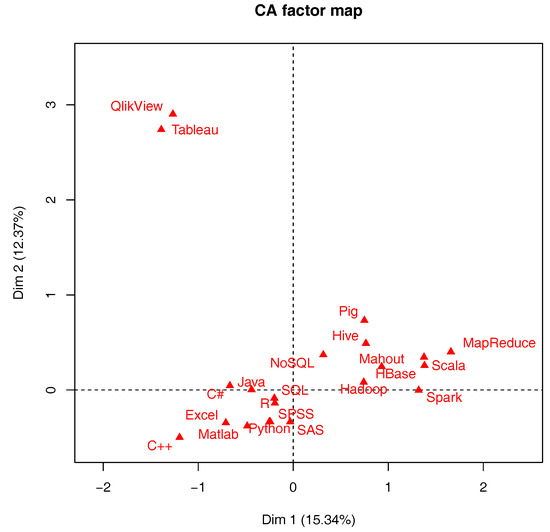Difference between revisions of "Template:Article of the week"
Shawndouglas (talk | contribs) (Updated article of the week text.) |
Shawndouglas (talk | contribs) (Updated article of the week text.) |
||
| Line 1: | Line 1: | ||
<div style="float: left; margin: 0.5em 0.9em 0.4em 0em;">[[File: | <div style="float: left; margin: 0.5em 0.9em 0.4em 0em;">[[File:Fig1 Murtagh BigDataCogComp2018 2-2.jpg|240px]]</div> | ||
'''"[[Journal: | '''"[[Journal:The development of data science: Implications for education, employment, research, and the data revolution for sustainable development|The development of data science: Implications for education, employment, research, and the data revolution for sustainable development]]"''' | ||
In data science, we are concerned with the integration of relevant sciences in observed and empirical contexts. This results in the unification of analytical methodologies, and of observed and empirical data contexts. Given the dynamic nature of convergence, the origins and many evolutions of the data science theme are described. The following are covered in this article: the rapidly growing post-graduate university course provisioning for data science; a preliminary study of employability requirements; and how past eminent work in the social sciences and other areas, certainly mathematics, can be of immediate and direct relevance and benefit for innovative methodology, and for facing and addressing the ethical aspect of big data [[Data analysis|analytics]], relating to data aggregation and scale effects. ('''[[Journal:The development of data science: Implications for education, employment, research, and the data revolution for sustainable development|Full article...]]''')<br /> | |||
<br /> | <br /> | ||
''Recently featured'': | ''Recently featured'': | ||
: ▪ [[Journal:GeoFIS: An open-source decision support tool for precision agriculture data|GeoFIS: An open-source decision support tool for precision agriculture data]] | |||
: ▪ [[Journal:Technology transfer and true transformation: Implications for open data|Technology transfer and true transformation: Implications for open data]] | : ▪ [[Journal:Technology transfer and true transformation: Implications for open data|Technology transfer and true transformation: Implications for open data]] | ||
: ▪ [[Journal:Eleven quick tips for architecting biomedical informatics workflows with cloud computing|Eleven quick tips for architecting biomedical informatics workflows with cloud computing]] | : ▪ [[Journal:Eleven quick tips for architecting biomedical informatics workflows with cloud computing|Eleven quick tips for architecting biomedical informatics workflows with cloud computing]] | ||
Revision as of 19:43, 4 September 2018
In data science, we are concerned with the integration of relevant sciences in observed and empirical contexts. This results in the unification of analytical methodologies, and of observed and empirical data contexts. Given the dynamic nature of convergence, the origins and many evolutions of the data science theme are described. The following are covered in this article: the rapidly growing post-graduate university course provisioning for data science; a preliminary study of employability requirements; and how past eminent work in the social sciences and other areas, certainly mathematics, can be of immediate and direct relevance and benefit for innovative methodology, and for facing and addressing the ethical aspect of big data analytics, relating to data aggregation and scale effects. (Full article...)
Recently featured:










